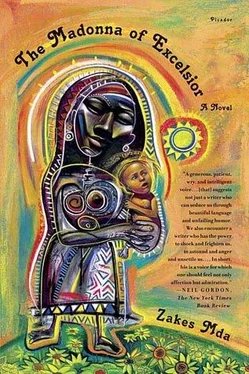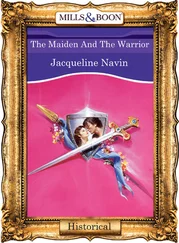Popi wondered why the hallowed room was called a chamber. Chamber in English too, when everything else was in Afrikaans. A chamber was the pot into which Niki peed at night. The thought of the chamber-pot reminded Popi that she had been suppressing her own urge to pee for the past half-hour. She did not know how to take leave of the august company around the table. Should she just stand up and rush out of the double doors, down the corridor in search of a toilet? Would she use the same toilet that the white people used? Should she raise her hand and ask, as in class, “Please, madam, may I go out”? What would happen if her urine flowed down her legs, and made a thin stream across the grey wall-to-wall carpet to the other side of the room? What would the town clerk say? What would the august members of the council say? Would they kick her out of the chamber? Pee belonged in the chamber, didn’t it?
Out, Popi! You don’t belong here! You are out of your league here! Out!
They would not dare. She had earned the right to belong here. Her only foolishness had been to choose a seat that faced the window. She had been the first to arrive. She had had a choice of ten seats. Ten empty chairs and she had selected the most inconvenient one. The glare of the sun was playing havoc with her eyes. The voluminous pink and violet curtains hanging on one side of the wall covered the big windows, but left a gap on just this one window opposite her. A source of light. And of irritation.
Popi did not like the idea that where she was sitting, she was directly facing Tjaart Cronje. And that she was facing a row of old Afrikaner men and women sitting on red chairs against the wall behind him. From one corner of the room to the next. Blending with the curtains behind them. Grave citizens of Excelsior who comprised the gallery. Concerned citizens who had come to witness the wonder of wonders. For the first time in the history of Excelsior, the town council had black members. And they were in the majority!
Those who came to sit as part of the gallery had come to terms with the changes that had happened in the country. With the fact that black people were in the majority and that at all levels of government, they would be in the majority. Those who stubbornly held the view that the changes were wrong, and that the Afrikaner had a God-given right to rule supreme over all, had boycotted this first session of the town council. Even though they had a councillor who stood for their aspirations — Tjaart Cronje.
Some of the members of the gallery were relatives of the newly elected councillors. But none of them came from Mahlatswetsa Location. Even though six of the ten councillors came from there. Perhaps the people of Mahlatswetsa Location did not know that members of the public were allowed in the gallery of the council chamber. Or they had not yet got used to the fact that they were now full citizens of the town. With the same rights and obligations as their white fellow citizens.
Niki was not there either, even though two of the new councillors were her children. Popi and Viliki.
That morning, Popi had dreaded entering the Stadsaal. The town hall. She had walked alone from her mother’s shack to town. Viliki had left much earlier. She had stood on the pavement, and had surveyed the Stadsaal, with a combination of anxiety and satisfaction. It was as though she was seeing the beige brick building for the first time. The whitewashed concrete borders framing the door and windows. The hint of Cape Dutch architecture in the gable above the letters Stadsaal . Cape Dutch without the white walls and the black roofs. Only the gable-topped wall above the door.
She had slowly walked along the light brown brick paving, past the giant Phoenix canariensis palm trees, two on each side of the paved area. She had stood near the door to read a marble plaque on the wall. Gelê dear Burgemeestersvrou/Laid by the Mayoress Mevr./Mrs. M.J. Coetzer 27-4-1946 .
Popi had wondered if the Mayoress who had laid this stone all those years ago would have approved if she could have seen her here. Perhaps her protective soul — which must still be hovering around the stone she had laid, as ancestors are wont to jealously guard what used to be theirs in life — thought that her presence was desecrating this building.
Popi had walked into the building. She had found herself in a corridor and had not known where to go. She had peeped into the room on the right. The room she later learnt was the council chamber. There was no one there. She had wandered into other rooms, until she came to Angela van der Walt’s office.
“What do you want?” Angela van der Walt had asked abruptly, without looking at her. She had continued to scribble something on a piece of paper.
“I am looking for the meeting of the council,” Popi had responded.
“It has not started yet,” Angela van der Walt had said. “You can wait outside. We do not allow members of the public into the gallery until the members of the council have arrived.”
“I am a member of the council,” Popi had said.
Angela van der Walt had raised her head for the first time. Her face had melted into a smile, as she looked the twenty-five-year-old girl over. Girl. Not woman. The custom was that Popi was a girl. So was Niki at forty-seven. So would Niki’s mother have been, if she had still been alive. Kitchen-girl. Nanny-girl. And now this girl in this hallowed hall? Council-girl? Council-girl wearing her mother’s curtains fashioned into a big turban. Light-complexioned council-girl with blue eyes. Beautiful tall slender council-girl in a red dress.
Angela van der Walt had chuckled to herself and had led Popi back into the council chamber.
“The members of the council sit at this table,” Angela van der Walt had explained. “You can sit anywhere you like except at the head of the table. Only the mayor, when you have elected one, sits at the head of the table.”
Foolishly, Popi had chosen a place directly opposite the window. The invasive sun had not yet found its way through the opening. Angela van der Walt had returned to her office.
A few minutes later, members of the council had begun to trickle in. Three members from the National Party. Among them Lizette de Vries. One member from the Freedom Front, in the formidable figure of Tjaart Cronje. The Freedom Front, an alliance of a number of those right-wing groupings who had decided to fight for the homeland of the Afrikaner within the system, had been a late entrant in the general elections the previous year. For the local elections this year, the Freedom Front had fielded a number of candidates. Only Tjaart Cronje had been successful.
Popi had fidgeted uneasily while waiting for the five other members of the Movement she was representing to arrive. She was alone among the four Boers. They were talking among themselves, ignoring her. Discussing farm and farming matters that she knew nothing about. And weddings and christenings of people she had never heard of. This conversation was above party politics, for even Tjaart Cronje participated in it.
Soon Popi’s comrades had arrived, including Viliki. The Movement was represented by six young councillors, none of them above the age of thirty. The Young Lions, as they called themselves. Popi revelled in being a Young Lion.
Her entry into the world of politics had been an unexpected one. Soon after her body had healed from its beating, she had been sucked into the Movement. The Movement had become her lover. When Niki had shown concern, Popi had told her that the Movement filled a hole in her heart. She had started by attending the rallies of the Movement. Not only those held in Excelsior. She had chased them all over the eastern Free State. Right up to Qwa Qwa, two hundred and fifty kilometres away. Niki’s pleas had gone unheeded. The call of the wild had been too strong. The Movement had seduced her, and she had surrendered herself completely.
Читать дальше












